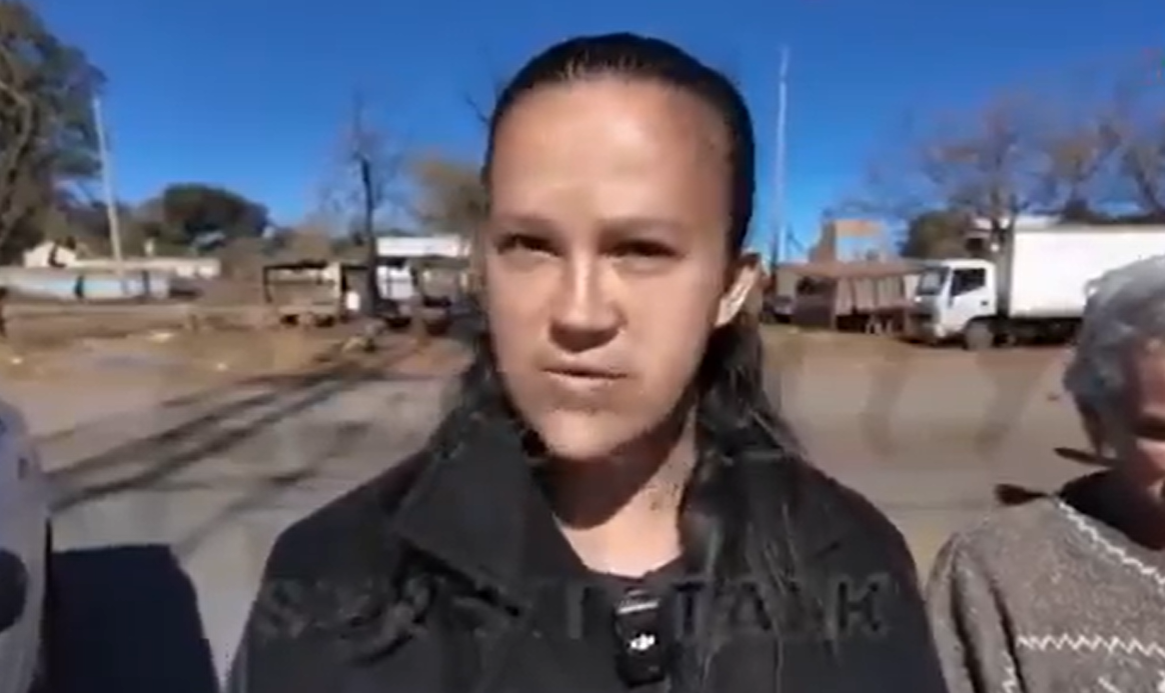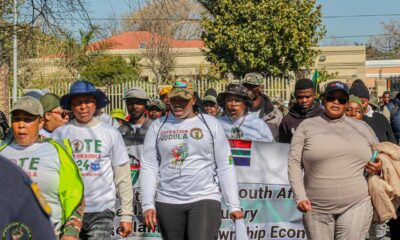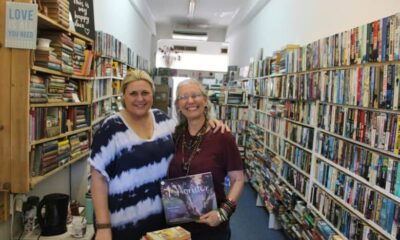Published
7 months agoon
By
zaghrah
Locals speak out after alleged intimidation and violence by foreign shop owners sparks fears of xenophobia and calls for urgent regulation.
A young woman from Welverdiend in Carletonville, Maryna Wolfaardt, says her family’s dream of running a small spaza shop has turned into a nightmare of threats and violence all because their store opened near one owned by Pakistani nationals.
The 29-year-old alleges she and her husband were attacked outside the police station, just hours after trying to report an earlier dispute. “They told us we had to follow their orders or they’d make us pay,” she said.
According to Wolfaardt, tensions began when her family began preparing to open a supermarket a few metres from an already established Pakistani-owned store. What started as verbal warnings allegedly escalated into physical assault.
“About seven in the evening, after we left the police station, a group in multiple cars was waiting outside. They got out and started attacking us,” she said. “I tried to call the police, but their leader grabbed my phone, pulled my hair and threw me to the ground.”
Her husband managed to escape to members of the Community Policing Forum, who called the police. Gunshots were reportedly heard as the attackers fled.
Police have confirmed the incident and say two suspects were arrested and released on R1,000 bail each. The charges include assault, intimidation and the unlawful discharge of a firearm. Three other suspects remain at large.
The Wolfaardt family isn’t alone. Boitumelo Dick, a bakery owner in the same area, says she and other black South African entrepreneurs have been served eviction notices by a Pakistani landlord, while tenants from his own community were spared.
“He told us to leave in seven days. I’ve been here since 2016, employing six people. Why are only the black-owned businesses being evicted?” she asked.
Dick says her bakery serves the local community directly and relocating could collapse her customer base.
The situation has reignited the longstanding debate over the regulation of small informal businesses in townships. Patriotic Alliance leader Otsile Gaonnwe accused government of “turning a blind eye” to the actions of illegal foreign shop owners, but urged calm to avoid xenophobic tensions.
“We know people are frustrated, but retaliating violently or targeting all foreigners is not the solution,” he said.
Africa Diaspora Forum chair Amir Sheikh echoed that call for restraint, urging peaceful resolution and mutual support between locals and migrants. “Both communities should benefit and grow together, not tear each other down.”
Meanwhile, Operation Dudula’s Zandile Dabula voiced her concern, saying that locals are being pushed out of industries that “should be reserved for South Africans.” She condemned the reported violence, saying, “This cannot be allowed to continue.”
At the heart of this volatile situation are struggling South African families trying to enter the informal business market and migrant entrepreneurs, many of whom are long-time residents, facing rising hostility. Allegations of coordinated intimidation tactics, however, are adding fuel to a fire already burning beneath South Africa’s strained economy.
While xenophobic violence must be condemned, community members say the lack of fair and transparent regulation over who can operate where and how, leaves too much room for abuse and exploitation.
For Maryna and her family, fear still lingers. “We see them passing every day. We’re not safe. This is our first business all we wanted was a chance.”
Police continue investigating, but locals are calling for more arrests and visible protection.
Civil society organisations want better enforcement of business licensing and property laws.
With racial and national tensions simmering, this case is becoming a test of South Africa’s ability to balance local empowerment with migrant rights.
As one resident put it: “This isn’t just about shops. It’s about dignity, safety, and the right to make a living, for everyone.”
{Source: The Citizen}
Follow Joburg ETC on Facebook, Twitter , TikTok and Instagram
For more News in Johannesburg, visit joburgetc.com


Gauteng education pushes back as school placement tensions spill into the open


The Perfect Holiday is in Your Own Backyard: Rediscovering Umhlanga


Gauteng Clinics in Turmoil as Vigilante Groups Block Patients from Care


Inside the Turbulent G20 Weekend: Gauteng Police Arrest 13 Linked to Summit Chaos


South Africa Finally Declares GBVF a National Disaster, But Women Ask: What Took So Long?


The Last Chapter: Durban North Says Goodbye to a 40-Year Literary Sanctuary















